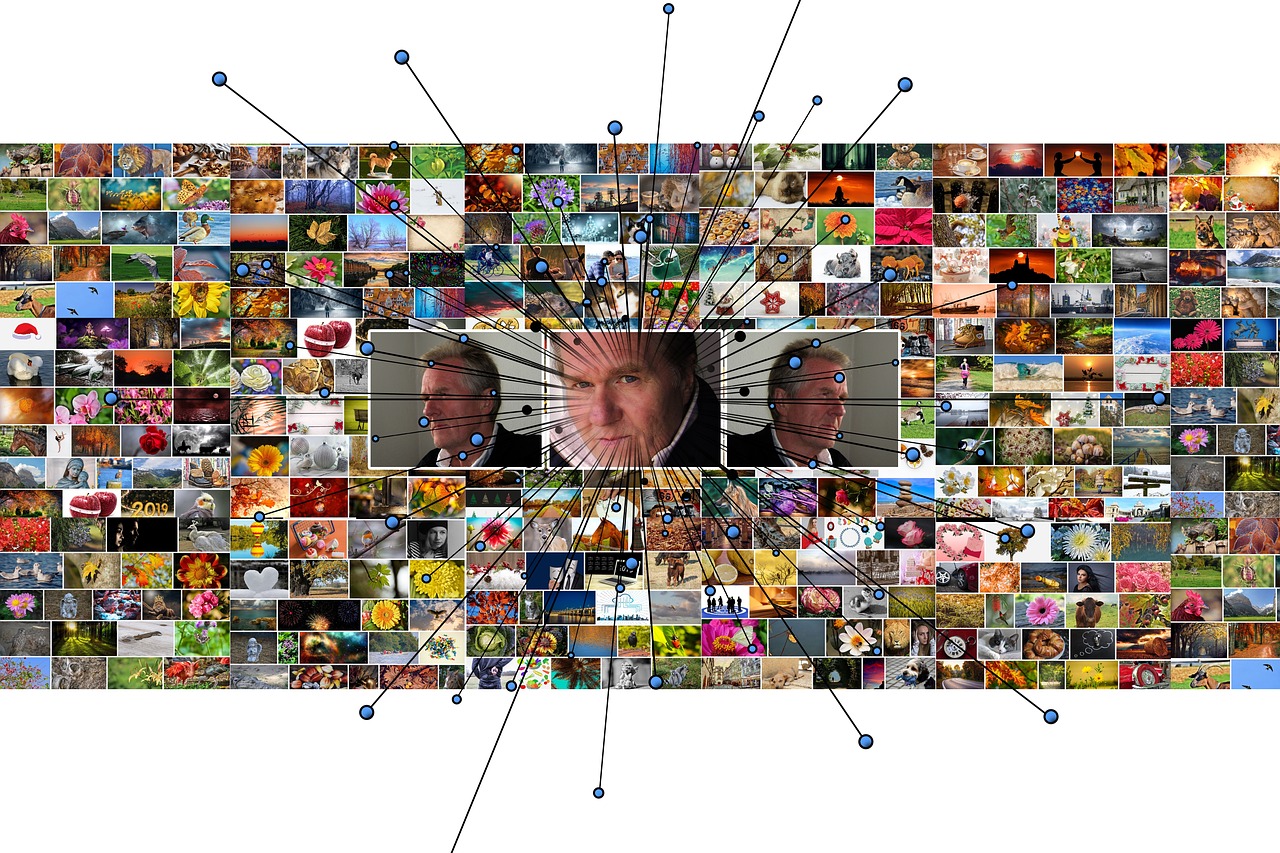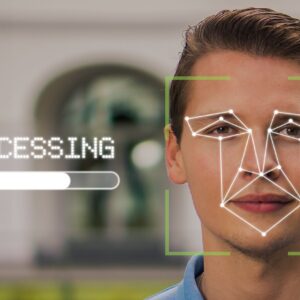Are you wondering why certain posts appear on your newsfeed while others don’t? The answer lies in social media algorithms. As social media platforms become an integral part of our daily lives, algorithms have become a crucial factor in determining the content we see on our feeds.
These algorithms are designed to analyze user behaviour and tailor content to their interests, making the user experience more personalized. But what is the impact of these algorithms on businesses and their social media strategies?
In this article, we will explore the growing influence of social media algorithms and their evolution over time. We’ll delve into how algorithms impact businesses and how they can optimize their social media strategies to reach their target audience. We’ll also dive into the role of engagement in social media algorithms and how businesses can keep up with algorithm changes.
Finally, we’ll take a look at the future of social media algorithms and what it means for businesses and users alike. So, let’s dive in and discover the world of social media algorithms.
Understanding Social Media Algorithms
You’re probably curious about how your favorite platforms determine what content shows up on your feed. Let’s dive into the mechanics behind these mysterious processes.
Social media algorithms are complex computer codes that use various factors to determine what content to show to each user. These factors include engagement levels, post frequency, profile information, and even the time of day.
Exploring algorithm bias is important, as these codes can perpetuate biases based on users’ demographic information. For instance, algorithms can show users of different races or genders different content, reinforcing stereotypes and prejudices.
Algorithmic transparency and privacy concerns are also important issues to consider. Many social media platforms do not disclose exactly how their algorithms work, which can lead to concerns regarding how much data is being collected and how it is being used.
The Evolution of Social Media Algorithms
As social media platforms have developed and adapted, their internal mechanisms have become increasingly sophisticated, shaping our online experiences in ways we may not even realize. Social media algorithms have evolved from simple chronological feeds to complex systems that use data analysis, machine learning, and artificial intelligence to determine what content users see.
These algorithms prioritize certain posts, filter out others, and even recommend content based on users’ past behavior. While these algorithms are designed to enhance the user experience, they have also raised concerns about algorithmic bias and ethical considerations.
Algorithmic bias refers to the unintended discrimination that can result from algorithms that are designed to make decisions based on data. For example, if an algorithm is trained on biased data, it may replicate and even amplify those biases, resulting in discriminatory outcomes.
In the context of social media algorithms, algorithmic bias can result in the prioritization of certain voices and perspectives over others, which can perpetuate existing power imbalances. As social media platforms become increasingly central to public discourse, addressing algorithmic bias has become more important than ever.
Ethical considerations also come into play when it comes to social media algorithms. For example, should platforms be transparent about how their algorithms work? Should users have more control over what they see? These are questions that social media companies will need to grapple with as they continue to develop and refine their algorithms.
The Impact of Social Media Algorithms on Businesses
You can’t afford to ignore how social media algorithms are affecting your business, or you risk falling behind your competition and missing out on potential customers. These algorithms determine what content users see on their feeds and what ads are shown to them. Therefore, understanding how they work and how to optimize your content for them is crucial for any business that wants to succeed on social media.

One important issue to be aware of is algorithmic bias. Algorithms are created by humans and can reflect their biases and prejudices, which can lead to discriminatory outcomes. For example, an algorithm may not show ads for job opportunities to women or people of color because it was trained on data that mostly included white men.
To prevent algorithmic bias, it’s important to regularly audit and test algorithms and ensure that they are fair and inclusive. Additionally, algorithmic transparency, or making the workings of the algorithms more visible and understandable to users, can also help to mitigate bias and promote trust in the platform.
Optimizing Your Social Media Strategy for Algorithms
If you want your business to thrive on social media, it’s like being a surfer riding the waves – you have to learn how to catch the right ones and ride them to success.
One of the key ways to do this is by optimizing your social media strategy for algorithms. With the growing influence of social media algorithms, it’s important to understand how they work and how to use them to your advantage.
Algorithmic bias and ethical considerations are important factors to keep in mind when optimizing your social media strategy. It’s important to avoid reinforcing biases and to ensure that your content is accessible to everyone.
Additionally, user-generated content and algorithmic curation can be powerful tools for creating engaging content that resonates with your audience. By understanding how algorithms work and incorporating these considerations into your strategy, you can increase your visibility and reach on social media.
The Role of Engagement in Social Media Algorithms
Discover how engagement metrics impact your social media success and learn how to use them to your advantage.
Social media algorithms are designed to prioritize content that generates high levels of engagement, such as likes, comments, and shares. This means that the more engagement your posts receive, the more likely they are to be seen by your followers and potential new audiences.
Therefore, it’s crucial to understand how engagement metrics work and how to optimize them to increase your reach and visibility. However, it’s important to be aware of algorithmic bias when it comes to engagement metrics.
Algorithms aren’t neutral and can perpetuate biases and inequalities. For example, if your audience is predominantly white, your posts may receive more engagement from white users, leading the algorithm to prioritize your content to white audiences and potentially excluding people of colour.
Therefore, it’s essential to diversify your audience and ensure that your content is inclusive and accessible to all. By doing so, you can increase your engagement metrics while also promoting diversity and equity on social media.
Keeping Up with Algorithm Changes
Staying abreast of algorithmic updates is crucial as they can significantly impact your content’s visibility and reach. Algorithmic updates are changes made to the algorithms that social media platforms use to determine what content to show to users. These updates are often made in response to changes in user behavior, such as changes in the types of content users are engaging with or changes in the way users are interacting with the platform.
One example of an algorithmic update that has had a significant impact on social media is Facebook’s News Feed algorithm update in 2018. This update prioritized content from friends and family over content from brands and publishers, resulting in a decrease in organic reach for many businesses.
To keep up with algorithmic updates, it’s important to stay informed about changes to the algorithms and to adjust your content strategy accordingly. This may involve experimenting with different types of content or focusing on building relationships with your audience to increase engagement.
The Future of Social Media Algorithms
The upcoming changes to the algorithms that dictate content visibility on popular online platforms are set to have a profound impact on businesses and individuals alike. As social media algorithms continue to evolve, there are growing concerns about the ethical implications of these changes.
One of the most pressing issues is algorithmic bias, which refers to the tendency of algorithms to favour certain groups or types of content over others. Algorithmic bias can have serious consequences for businesses and individuals who rely on social media to reach their target audience.
For example, if an algorithm favours certain types of content over others, it could lead to a situation where some businesses are unfairly disadvantaged. Additionally, algorithmic bias can perpetuate existing inequalities and reinforce stereotypes, which can have a negative impact on society as a whole.
As social media algorithms become more sophisticated, it’s important for businesses and individuals to be aware of these issues and take steps to mitigate their impact.
Frequently Asked Questions
How do social media algorithms impact mental health and well-being?
If you’re a young person who spends a lot of time on social media, you may be impacted negatively by the algorithms that decide what content you see. Studies have shown that excessive social media use can lead to depression, anxiety, and other mental health issues.
The algorithms that drive social media platforms can contribute to these negative effects by promoting content that is sensational or divisive, rather than informative or helpful. Additionally, there are privacy concerns associated with these algorithms, as they collect vast amounts of data about users’ online behavior, which can be used for advertising or other purposes.
As social media becomes more integral to our lives, it’s important to be aware of the impact it can have on our well-being and take steps to mitigate any negative effects.
What ethical considerations should be taken into account when designing social media algorithms?
You may think that designing social media algorithms is a straightforward process, but there are ethical considerations that must be taken into account.
Privacy concerns are at the forefront of these considerations, as algorithms have the potential to collect and use personal data in ways that users may not be aware of or comfortable with.
Algorithm transparency is also crucial, as users should have a clear understanding of how their data is being used and how the algorithm is making decisions.
Ignoring these ethical considerations can have serious consequences, such as eroding trust in social media platforms and damaging user mental health.
It’s important to remember that social media algorithms have a significant impact on our lives, and designing them responsibly is essential for creating a safe and trustworthy online environment.
How do social media algorithms affect political discourse and democracy?
When it comes to political discourse and democracy, social media algorithms have had a significant impact. Online polarization has become increasingly prevalent, as individuals are exposed primarily to content that aligns with their existing beliefs and opinions. This can lead to a lack of exposure to opposing viewpoints, ultimately reinforcing existing biases and further dividing society.
Additionally, the spread of fake news through social media platforms has become a significant concern, as individuals may struggle to distinguish between accurate and misleading information. As a result, social media algorithms must be designed with ethical considerations in mind to mitigate these negative effects and promote a more informed and unified public discourse.
Can social media algorithms be manipulated or hacked?
When it comes to social media algorithms, there’s a growing concern about the potential for manipulation and hacking.
Algorithmic bias can occur when the algorithms are designed to favor certain types of content or users, leading to a skewed representation of information.
Additionally, there are concerns about the impact of user engagement on the algorithms. They’re designed to prioritize content that generates the most clicks, likes, and shares. This can create a feedback loop that reinforces certain types of content and limits the diversity of perspectives on social media platforms.
As social media continues to play an increasingly important role in shaping public discourse, it’s important to consider the potential risks and limitations of these algorithms.
How do social media algorithms differ across different platforms and why?
You may have noticed that social media platforms differ in the way they present content to users. This is because each platform has its own unique algorithm for content curation. These algorithms are designed to keep users engaged by showing them the content they’re most likely to interact with.
For example, Instagram’s algorithm takes into account factors such as user engagement, timeliness, and relevance when deciding what content to show in a user’s feed. On the other hand, Facebook’s algorithm places more emphasis on past user interactions and the type of content a user typically engages with.
Understanding these differences is important for businesses and individuals alike, as it can help them tailor their content to maximize user engagement on each platform.
Conclusion
Congratulations! You’ve made it to the end of the article. By now, you have a better understanding of the growing influence of social media algorithms and how they impact businesses.
But what about individuals like you? Coincidentally, as you were reading this article, your social media feeds were being influenced by algorithms. Perhaps you noticed that certain posts were prioritized over others, or that you were shown ads related to your recent searches.
It’s not a coincidence that social media platforms have become an integral part of our daily lives, and algorithms play a crucial role in shaping our online experiences. As social media algorithms continue to evolve, it’s important to stay informed and adapt your strategy accordingly.
By focusing on engagement and keeping up with algorithm changes, you can optimize your social media presence and reach a wider audience. So, keep an eye on your feeds, stay up to date with the latest trends, and embrace the power of social media algorithms.
Who knows, maybe the next post you scroll past will be the one that changes your life.




